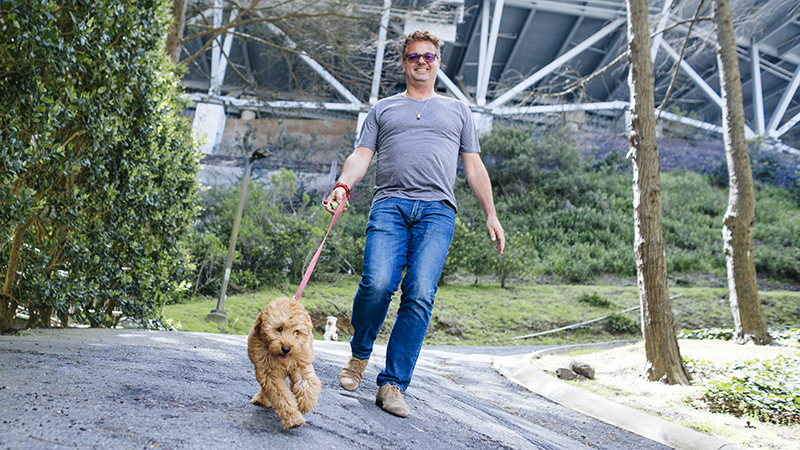Greater Good Science Center shares resources for joy, laughter and rest
Share This Article

By the Greater Good Science Center
Summer is supposed to be fun, but what the heck do we mean by “fun”? That’s a question researchers at the Greater Good Science Center have been exploring for many years, through articles, videos and podcasts about play, creativity, flow, games and humor. When you break it down scientifically, as we do, fun might not seem very fun. But the research reveals something that we should all try to remember: Fun is an essential key to our well-being, one that needs to be defended against the encroachments of work and other responsibilities. We hope these articles inspire you to make space in your life for whatever gives you joy.
Vacation and rest
- Eight steps to a happier vacation: Traveling can be stressful. Can the science of happiness help?
- Why you should take more time off from work: Not only are vacations relaxing, but they can boost our productivity and creativity—if done right.
- You do have time for a summer vacation: Many people feel like they have too much work to take a vacation. But research suggests you’ll be happier, healthier and more productive if you do.
- How to avoid post-vacation stress: So you’ve spent all that time and money to plan a vacation, but what’s your after-vacation plan?
- Greater Good summer reads from 2018 and 2019: Still looking for books to take with you on vacation? Here are some terrific novels, memoirs and self-help titles that explore Greater Good themes.
Play
- Can we play?: Play is essential to positive human development, but kids are playing less and less, says psychologist David Elkind. What can we do to build a new culture of play?
- Games animals play: Animal play is serious business, say scientists Lee Alan Dugatkin and Sarina Rodrigues.
- Why grownups should be playful, too (The Science of Happiness Podcast): Playfulness can improve your relationships, help you excel at work and reduce stress. We explore a strategy shown to help you become more playful.
- What playfulness can do for your relationship: Being silly with your partner may have some serious benefits.
- Why sex is so good for your relationship: New research on sex in relationships shows the real reason it can benefit yours.
- What happens when we play (The Science of Happiness Podcast): When was the last time you went down a slide? Our guest tries a practice to bring more play into his life and explores what that means as a Black man in the U.S.
- Happiness break: a meditation on playfulness, with Dacher Keltner: We all have a playful side, and research shows acting on it can help us when we need to move through challenging emotions, manage conflict and be more creative.
- For Black children, play can be transformative: Play is a radical and liberatory activity for Black children. As adults, we have a responsibility to promote and participate in it, too.
Humor
- Four funny ways laughter is good for you: Research suggests that laughing more may help us be healthier, happier and more socially connected.
- How laughter brings us together: New research suggests that people who laugh together like each other more.
- How a little humor can improve your work life: Laughter and jokes can make us happier and more productive on the job.
- Why humor matters for happiness (The Science of Happiness Podcast): Humor can help us with stress, anxiety and feeling more connected to others. But is humor connected to mindfulness? And how can we find more of it?
- Why love needs laughter (The Science of Happiness Podcast): Focusing on funny things can reduce stress, anxiety and make us feel more connected to others. Our guests, who were high school sweethearts, learn how humor can also strengthen relationships.
- How Michael Lewis finds the funny (The Science of Happiness Podcast): How can you unearth humor in everyday life? Best-selling author Michael Lewis goes looking for laughs.
Other fun activities
- Four ways dancing makes you happier: Human bodies are hardwired for dance, which might explain why it’s so good for our health, happiness and relationships.
- Why Caribbean music is good for you: Caribbean music can bring people together and get us moving and dancing, alongside its cultural and political significance.
- What we can learn from sensation seekers: Sensation seekers crave new and complex experiences, even when they’re dangerous—but they can also teach us a few lessons about positive emotions.
- What Mel Brooks can teach us about “group flow”: Researcher R. Keith Sawyer looks to comedians and jazz groups for 10 keys to more creative, successful teams in the office, on the field and beyond.
- Scheduling time to feel awe(some) (The Science of Happiness Podcast): Feeling awe can boost your mood and make you feel more connected with others. Comedian Chris Duffy learns how to tap into it.
- Can’t relax? This will help (The Science of Happiness Podcast): Why does a bath or swim feel so relaxing? Our guest shares her own happiness practice—spending time in water—which science is finding can make us happier and healthier.
For educators
- Five ways for educators to reset and renew this summer: The school year is almost over! These practices can help you recharge your batteries and get the most out of your summer break.
- Five ways for teachers to recharge this summer: Another school year is over. And just in time, here are activities from our new web resource to help teachers make the most of summer.
